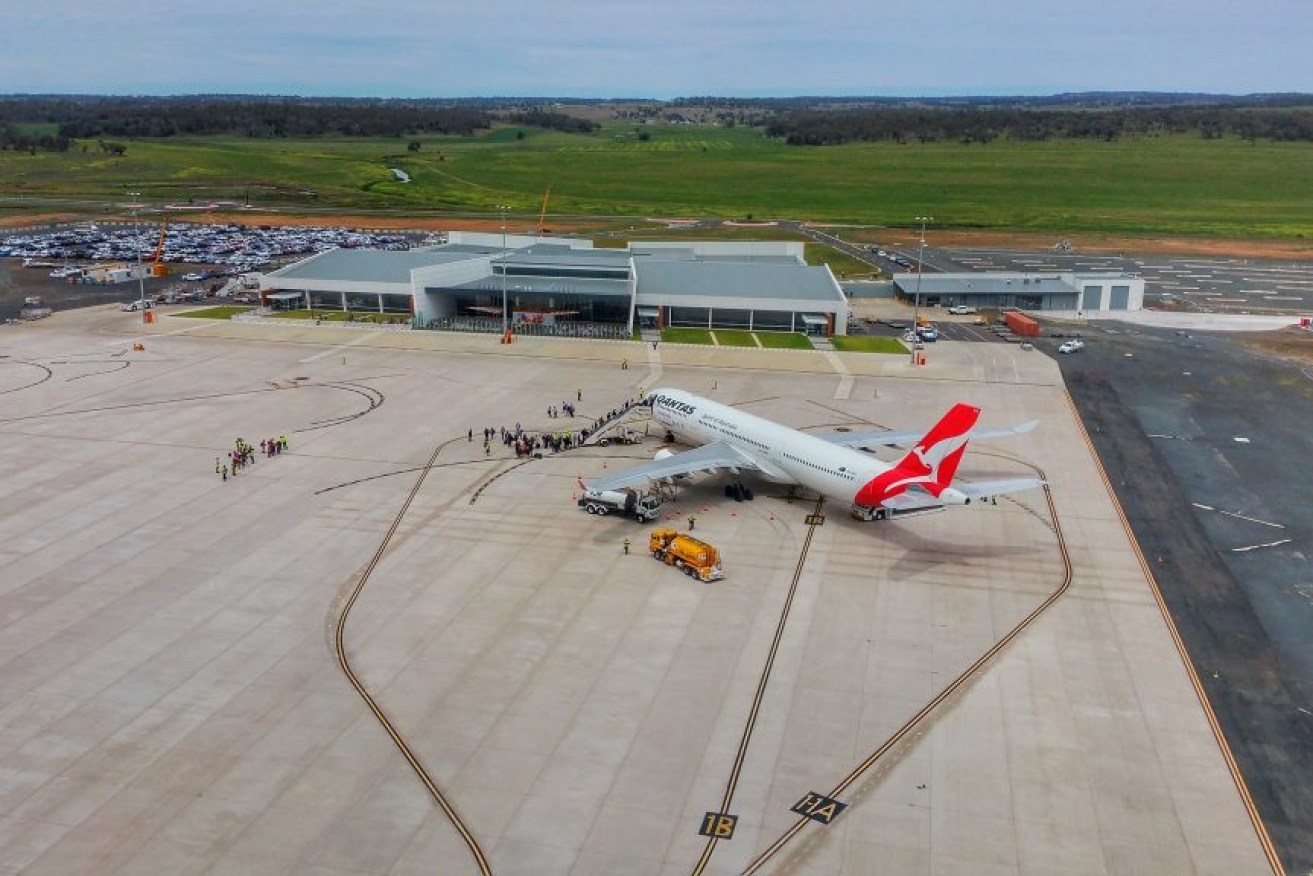Quarantine dream: What Melbourne has that Toowoomba doesn’t (apart from COVID-19)
Federal bureaucrats say Toowoomba Wellcamp Airport would need a traffic control tower, fire services, and international passenger processing to be used for direct quarantine. It is unclear who would pay for it.

Queensland Treasurer Cameron Dick said initial estimates suggested the new Boeing facility at Wellcamp would benefit the Queensland economy by $1 billion over the next decade. (Photo: Supplied)
Prime Minister Scott Morrison has long questioned Queensland’s support for a Wagner Group proposal to build a self-funded quarantine facility near Wellcamp Airport. He has pointed to there being no international airport in Toowoomba, however Premier Annastacia Palaszczuk has said the Commonwealth would only need to allow international flights to land at Wellcamp for it to proceed.
Yet Federal bureaucrats say it is more complicated than that: there is no traffic control tower and a lack of fire services – both key issues for aviation regulators and airline insurers – and the Commonwealth would need to provide international passenger screening services. That would cost tens of millions of dollars more, separate to the cost of the facility that the Wagners want to fund using the money passengers normally pay for hotel quarantine.
Some have suggested a self-contained quarantine facility near Brisbane International Airport would be more likely to proceed, however there have been no such proposals from the private sector, and the Wagner Group is focussed on build its capacity and facilities around Wellcamp.
Morrison has also argued stand-alone quarantine facilities should be used to complement existing hotel quarantine arrangements, whereas Palaszczuk has been critical of hotel quarantine and calling for their replacement. There are also questions over health services under the Wellcamp proposal, given Queensland transfers any COVID-19 patients to hospital.
In Victoria, where there have been several breaches of hotel quarantine, the State Labor Government is pushing forward with its own plan for a stand-alone quarantine facility. Acting Victorian Premier James Merlino today confirmed he and Morrison had signed a memorandum of understanding.
Morrison today said Victoria had put forward a “very, very good proposal” that he had always taken seriously.
The Victorian government put the proposal to the Commonwealth in late April, nominating a a site at Mickleham, north of Melbourne, as its preferred option, or alternatively Avalon Airport near Geelong.
Victoria wanted the Commonwealth to fund and build the 500-bed facility at a cost of $200 million. It would chip in $15 million for design of the centre, and also operate it.
The Commonwealth appears to support the Avalon site, although Defence Minister Peter Dutton said it would not eliminate the risk of breaches.
“I think where you’ve got human beings involved, there is a potential for breach and that’s why there’s not a fundamental problem at all with the hotel quarantine,” Dutton told Nine.
“We’ve just got to make sure that we continue to support the staff there to keep those protocols in place because it’s worked very well, as I say, almost 100 per cent of the time, and it’s been one of the best systems in the world.”
While Morrison is expected to use the Victorian plan as a template for other states, Palaszczuk on Thursday said she believed Wellcamp was “still on the table”.
Palaszczuk said hotels were not designed for quarantine and stand-alone facilities in regional areas, preferably on Commonwealth land, could reduce the risk while also providing local economic stimulus.
However, UNSW epidemiologist Professor Mary-Louise McLaws today said purpose-built quarantine facilities were needed in every capital city, where they could be supported. Until then, she argued, hotel quarantine should be improved, to reduce the risk around airflow.
“We’ve had a year of outbreaks in the community accounting for 21,000 cases directly and indirectly caused by breaches in our hotel quarantine system,” says McLaws, an adviser to the World Health Organisation Infection Prevention and Control for COVID-19.










